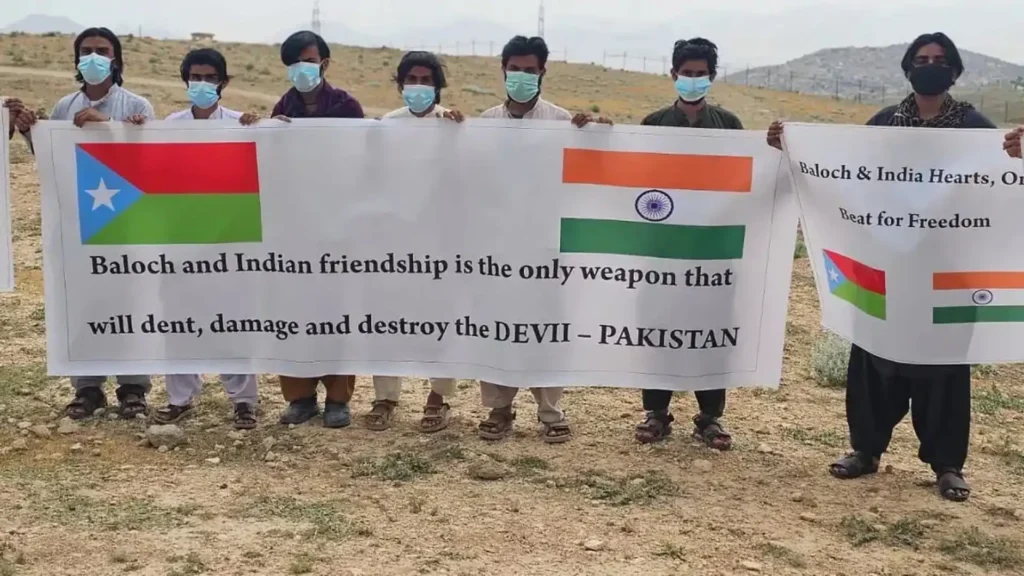WHY IT HAPPENED
Tensions in Balochistan have flared up again after prominent Baloch nationalist leaders issued a symbolic declaration of independence from Pakistan. The declaration, made public by Baloch activist and writer Mir Yar Baloch, announced the creation of a “Republic of Balochistan”.
His appeal—shared on social media—included calls for:
- India to establish a Baloch embassy in New Delhi
- The United Nations to recognize the new republic
- International funding for basic state functions like currency and passport issuance
These demands come in the backdrop of deep-rooted resentment among the Baloch population over political suppression, economic exploitation, and widespread human rights abuses by the Pakistani state.
WHAT’S HAPPENING NOW
The situation escalated as the Balochistan Liberation Army (BLA) claimed responsibility for a massive series of attacks under “Operation Herof.”
- 71 coordinated attacks were carried out across 51 locations
- Targets included:
- Military and intelligence facilities
- Police stations
- Mineral transport vehicles
- Major highways
- Military and intelligence facilities
In a statement on May 11, the BLA warned that “a new order has become inevitable” in South Asia. The group dismissed ceasefire talks as a “deceptive tactic” by Islamabad and urged regional powers—especially India—not to trust Pakistan’s intentions.
Meanwhile, social media was flooded with images of Baloch flags, maps of an independent Balochistan, and messages of solidarity from various activists.
CONTEXT & BACKGROUND
- Historical roots: Balochistan was part of the princely state of Kalat and was annexed by Pakistan in 1948, triggering decades of insurgency and unrest.
- Human rights violations: International organizations have repeatedly flagged incidents of:
- Enforced disappearances
- Extrajudicial killings
- Civilian targeting
- Most recently, the alleged killing of Baloch rally driver Tariq Baloch under Pakistan’s “kill and dump” policy
- Enforced disappearances
- Economic exploitation:
The province holds vast natural resources and is home to the Gwadar Port, a key part of the China-Pakistan Economic Corridor (CPEC). Despite billions in Chinese investment, locals report displacement, lack of compensation, and exclusion from economic gains.
WHAT IT MEANS FOR THE FUTURE
The symbolic declaration, though not internationally recognized, marks a significant escalation in Balochistan’s separatist movement.
- It could inspire other separatist sentiments within Pakistan
- Raises security concerns for Chinese investments in CPEC
- Adds pressure on India and global powers to clarify their stance
Baloch leaders are now actively courting India’s support—even proposing symbolic gestures like renaming Jinnah’s House in Mumbai to “Balochistan House.”
While Islamabad remains silent, the developments are likely to complicate regional diplomacy and cast a shadow over peace in an already volatile area.
Read More : Airlines Reroute, Cancel Flights Due to India-Pakistan Conflict and offer discount on Akbar Travels Coupon Code for UAE .
